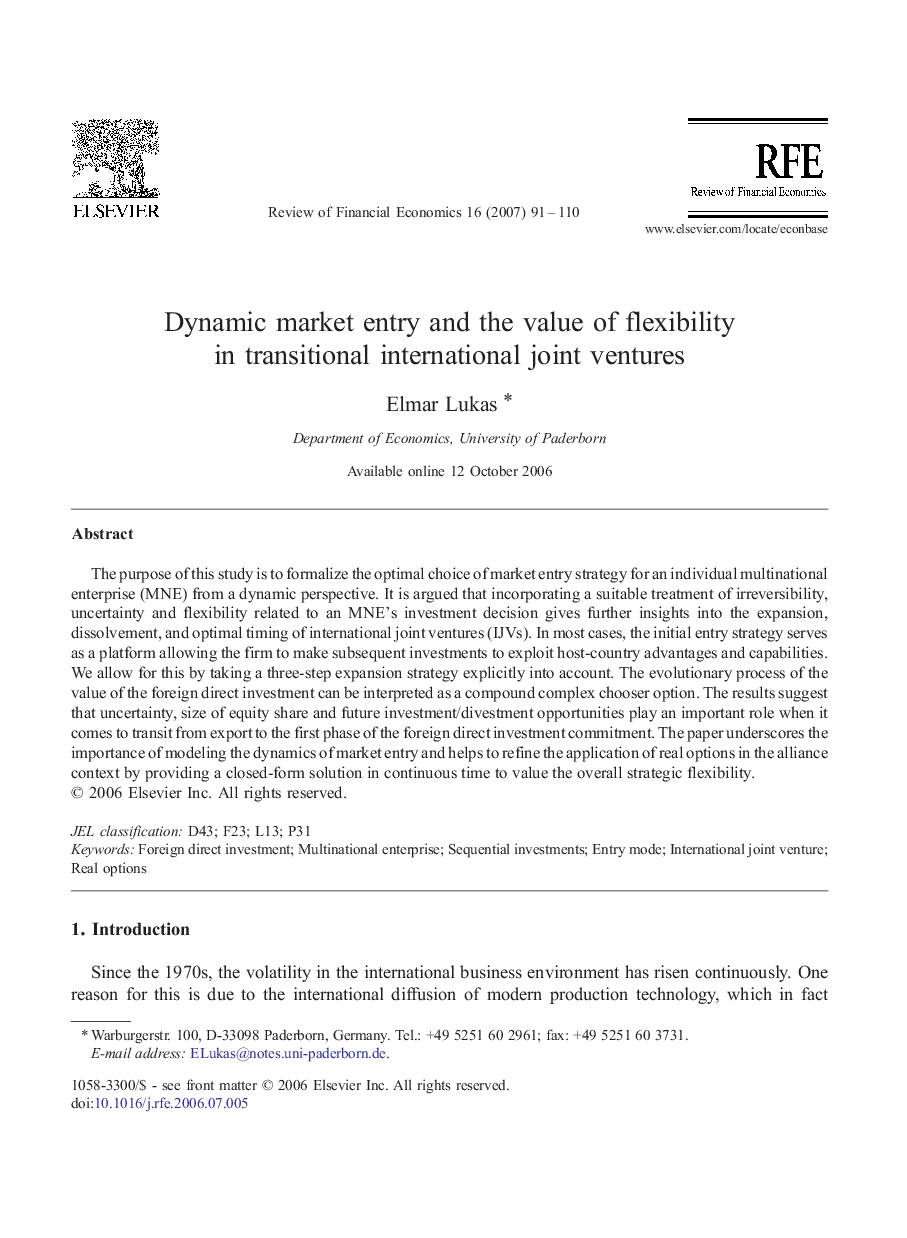| Article ID | Journal | Published Year | Pages | File Type |
|---|---|---|---|---|
| 986101 | Review of Financial Economics | 2007 | 20 Pages |
The purpose of this study is to formalize the optimal choice of market entry strategy for an individual multinational enterprise (MNE) from a dynamic perspective. It is argued that incorporating a suitable treatment of irreversibility, uncertainty and flexibility related to an MNE's investment decision gives further insights into the expansion, dissolvement, and optimal timing of international joint ventures (IJVs). In most cases, the initial entry strategy serves as a platform allowing the firm to make subsequent investments to exploit host-country advantages and capabilities. We allow for this by taking a three-step expansion strategy explicitly into account. The evolutionary process of the value of the foreign direct investment can be interpreted as a compound complex chooser option. The results suggest that uncertainty, size of equity share and future investment/divestment opportunities play an important role when it comes to transit from export to the first phase of the foreign direct investment commitment. The paper underscores the importance of modeling the dynamics of market entry and helps to refine the application of real options in the alliance context by providing a closed-form solution in continuous time to value the overall strategic flexibility.
